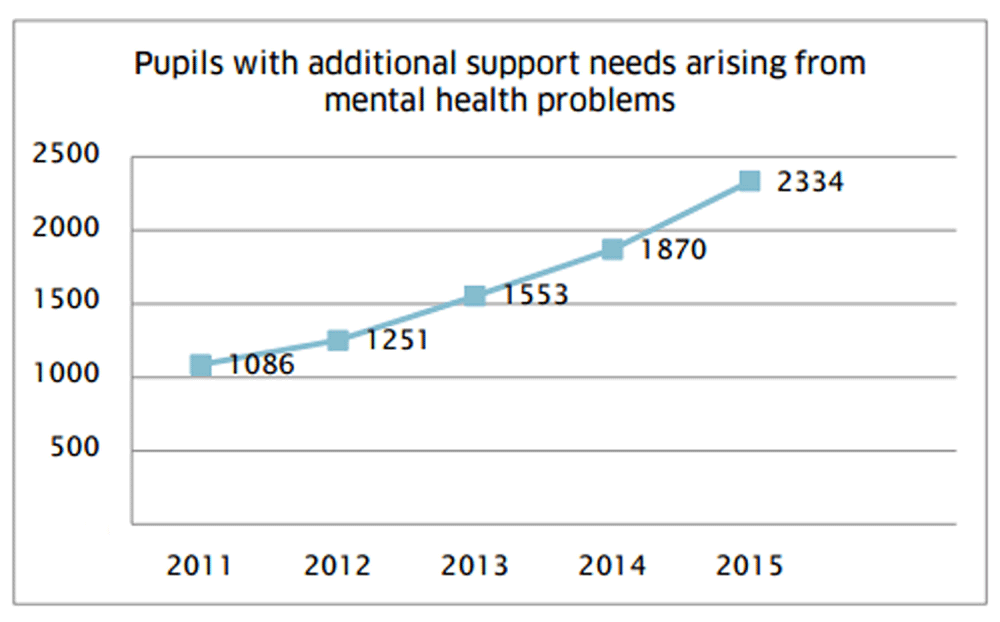THE number of Scottish school pupils needing classroom help for mental health problems has more than doubled, shocking new statistics have revealed.
New research by the Scottish Government has revealed that in 2011 only 1,086 students required extra classroom support as a result of issues like depression, anxiety and schizophrenia.
But just four years later – in 2015 – 2,334 pupils required additional support as a result of such problems.
Experts say that the 115% increase has come at a time when spending on the mental wellbeing of young people is being cut – indicating an oncoming “crisis” in schools.
The report does not suggest why the number of children requiring support has risen.
But a recent study by Glasgow University linked excessive use of social media – particularly at night – to depression and anxiety.

Another study from Stirling University has claimed that excessive testing of pupils can leave them wracked with anxiety.
The government report – titled Supporting Children’s Learning – was published on March 18.
It showed that the attendance of these pupils with mental health issues was far worse than others, and they are almost 10 times more likely to be excluded than others.
And it shows that a “significantly greater” proportion of school leavers with these mental health problems are unemployed, but not looking for work or training.
It also revealed how some councils have identified few or no students requiring support as a result of their mental health problems.
In Angus and the Western Isles there were officially no such students in 2015.
Jackie Brock – chief executive of Children in Scotland – said: “We believe that the impact that mental health difficulties have on children’s education, and the inadequate levels of child and adolescent health provision, have reached a critical point in Scotland.”
The charity has seen a significant increase in calls to Enquire – the helpline service that it manages.
Enquire manager Sally Cavers added that a whole-school approach should be taken to tackle the issue.
She said: “It’s not just about pastoral care or guidance responsibility, it’s everybody looking out for every pupil’s wellbeing.
This – she claimed – should include schools telling children “what to do if you’re worried about your friends.”
Euan Duncan – president of the Scottish Secondary Teachers’ Association (SSTA) – said: “Rising mental health issues amongst youngsters are a serious concern, and local authorities need to consider carefully whether support in this area is as good as it can be.
“There is wide evidence that spending on young people’s mental health is decreasing as a result of budget pressures.
“This will have a serious impact on the quality of youngster’s lives and the lives of those who teach and care for them.”
Pupils diagnosed with mental health problems receive specialised help including meditation sessions and “summer transition programmes”.
The Scottish Children’s Services Coalition (SCSC) has also said that crisis in children’s mental health should be the key priority for the next government.
The Scottish Government said mental health is “an area of priority for education and, particularly, our activity to close the attainment gap.”

